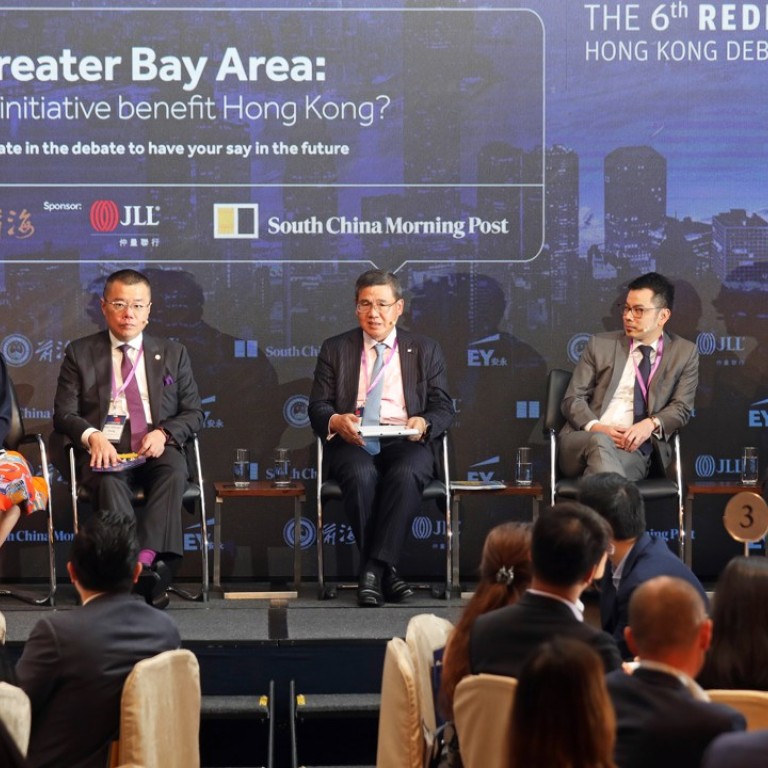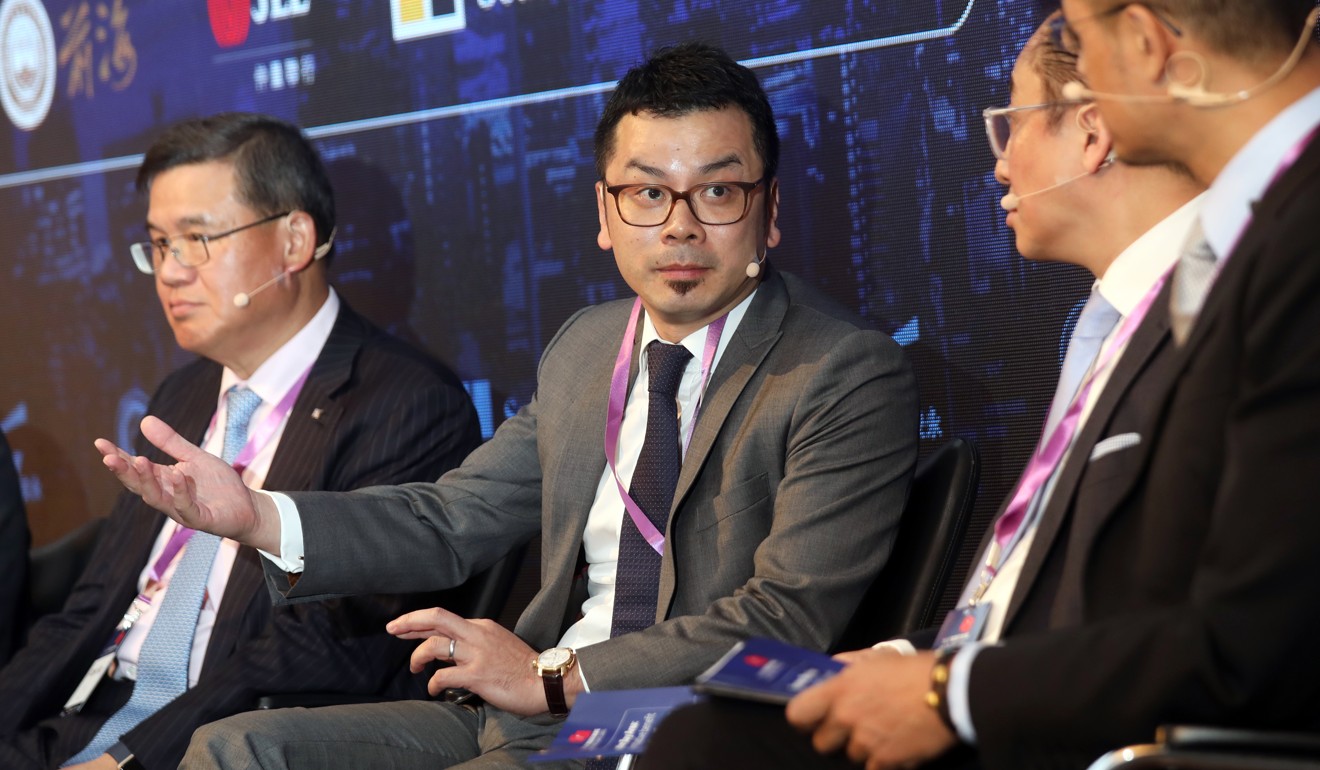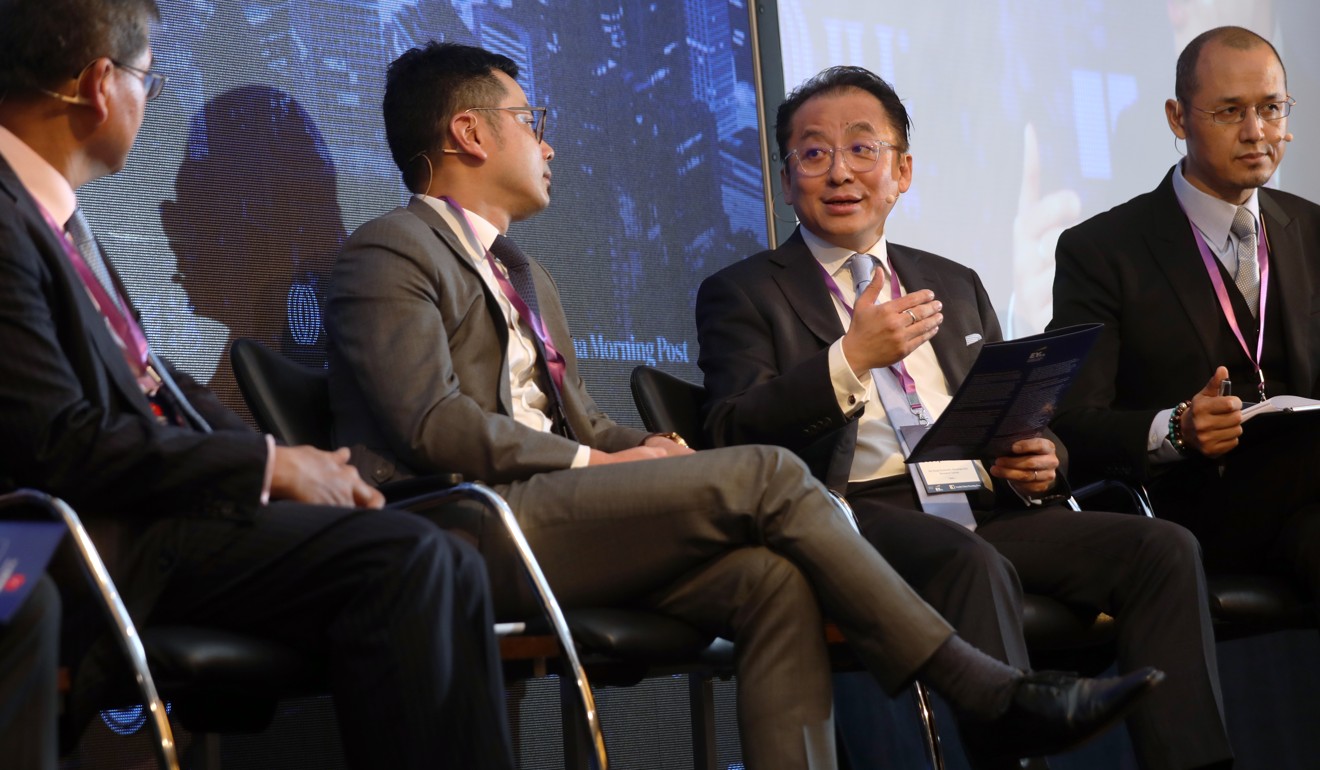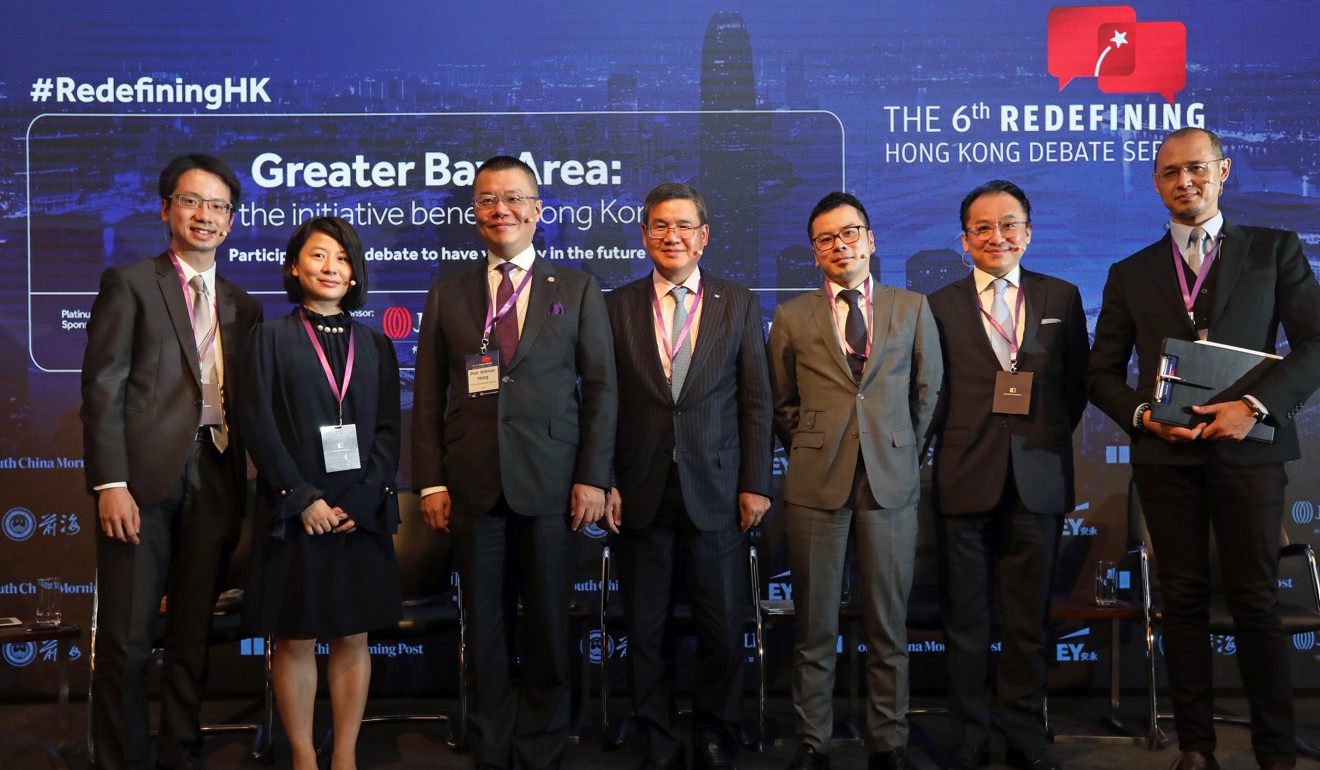
Make ‘Greater Bay Area’ opportunities easier to avail of to spur city’s success, experts tell Hong Kong authorities
- Businesses need more measures and tax incentives to make the economic integration plan work, panel discussion is told
- Speakers also said Hong Kong should do more to improve the public perception of the Bay Area plan
Hong Kong should adopt a liberal and pragmatic approach as it seizes business opportunities under Beijing’s initiative to turn the city and 10 of its neighbours into an economic powerhouse rivalling Silicon Valley, or risk being left behind by its mainland partners.
Leaders and experts from the local commercial sector also urged authorities to roll out more measures and tax incentives to improve the business environment in the region, as, they said, Hong Kong cannot afford to be left alone under the plan.
The remarks were made on Friday by five speakers in a panel discussion on whether the “Greater Bay Area” plan will benefit Hong Kong, in the latest edition of the “Redefining Hong Kong Debate Series” organised by the South China Morning Post.
Hongkongers working in mainland China could see tax bill go up

Under Beijing’s ambitious project, Hong Kong, Macau and nine Guangdong cities will be integrated into a financial and technological hub to compete with other bay areas in the US and Japan.
While business and professional sectors hailed the plan, opinion polls have shown that Hong Kong residents are relatively sceptical about it – citing worries over the uncertainties of integration and whether it would compromise the city’s semi-autonomous status and civil liberties.
Greater Bay Area must be as ‘liveable’ as Hong Kong
Albert Ng, EY’s China chairman and Greater China managing partner, said Hong Kong “needs to change its mindset” to succeed and thrive under the plan.
In a reference to Beijing’s governing policy which guarantees Hong Kong’s high degree of autonomy, Ng said: “One country, two systems still benefits Hong Kong: rule of law, exchange control, professional people, and an established financial market ... How can we use that for other locations in Guangdong?”
Ng added that people need to visit the mainland and “try to benefit from it rather than just looking at it negatively and miss the opportunity”.

Witman Hung, the principal liaison officer for Hong Kong at the Qianhai Authority – the governing body of Shenzhen’s financial hub, agreed that rather than being overtly cautious, local companies should be pragmatic and learn from the experience of China’s economic reforms and opening up in the last 40 years.
Hong Kong’s integration with the mainland is a two-way street
“There were trials and errors and setbacks ... Let’s do ‘cross the river by feeling the stones’,” he said, citing a famous quote from China’s late paramount leader Deng Xiaoping.
Hung, a Hong Kong deputy to China’s legislature, also echoed Ng’s point that the Bay Area project is not about competition, but cities leveraging each other in a fair way.
However, Denis Ma, head of research at JLL Hong Kong, argued that the onus is on the government to come up with more supportive measures than simply expecting companies to be courageous.

When you read primary and secondary schoolbooks, you don’t see a lot of history about modern Hong Kong, and contemporary China
“On its own, southern China is a great growth story. I think the GBA is just kind of more like a turbo charge ... For it to be successful, you really want to make it a lot easier for cross-border flows of capital, people, mobility, and also information and goods,” Ma proposed.
Dr Yifan Hu, chief China economist at UBS Global Wealth Management, said trade and tax are two other areas that authorities should work on.
“The Hong Kong tax rate is about 17 per cent, but in the mainland it’s 45 per cent ... Differences [like this] made it quite hard to have high-quality rapid growth. So what the government can do is maybe make this bay area a free trade zone, and set up some blueprints for the area as experiments,” she suggested.
But Joseph Chan Nap-kee, chairman of the Hong Kong-based Silk Road Economic Development Research Centre, said public education was also needed to change the negative perceptions about integration.
“It has something to do with education. We talk about the mainland and talk about China as if Hong Kong is not part of it ... When you read primary and secondary schoolbooks, you don’t see a lot of history about modern Hong Kong, and contemporary China. That’s something I believe we have to improve on,” Chan said.


